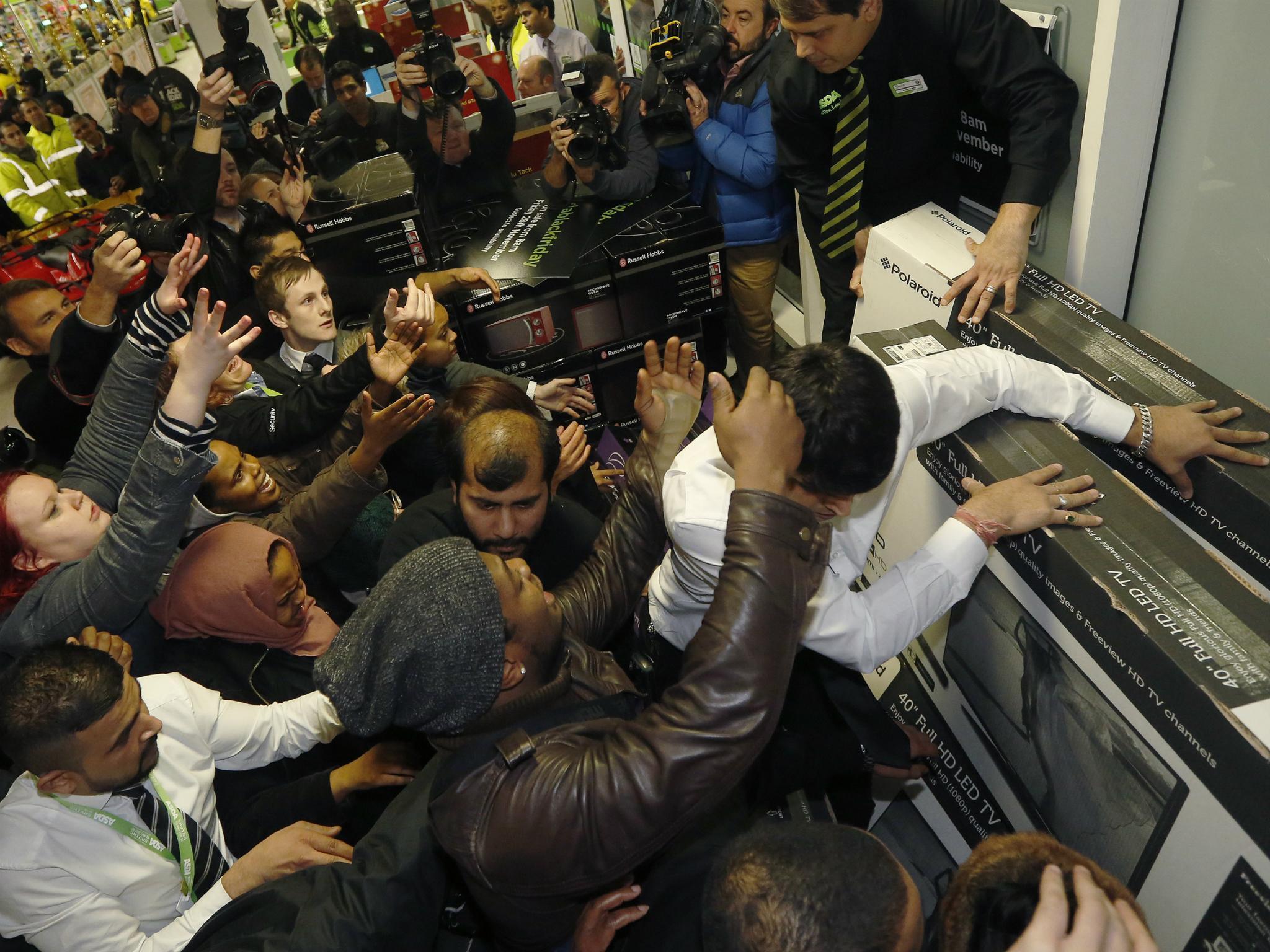Black Friday may herald bleak future for bricks and mortar stores as City awaits results
As Cyber Monday gets under way, the early indications are that retailers’ online operations have been doing the heavy lifting during the Black Friday discount week

Cyber Monday more or less brings an end to the retail sector’s mad week of “special” deals that aren’t always all that special.
Meanwhile, the City has started to speculate about who won, who lost, and what the overall result of the Black Friday retail festival will tell us about the economy and the consumer’s place within it.
The signs from organisations such as Barclaycard are that spending was up and that the discounting — much of which these days starts well before Black Friday itself — tempted shoppers out of the torpor they had sunk into, evidenced by muted September retail sales figures.
But perhaps “out” is the wrong word to use in this context, because increasing numbers of British consumers aren’t going out anymore. They’re staying in and doing their shopping via their mouses and their mobile phones.
John Lewis is one of the retailers to have made encouraging noises about the Black Friday party ahead of its regular weekly trading update.
A notable feature of its announcement of a “promising start” to the day was how the press release opened with the news that the morning of Friday 24 November saw the Partnership’s best hour of online trading to date. Some 705 units were shifted by johnlewis.com every minute.
The early indications are that trading was heavily skewed towards online across the sector.
Next, a company that has in the past decried the event, but which joined in this year all the same, has openly speculated about what its future without bricks and mortar shops might look like.
It had its reasons for doing so in public. Its musings detracted from what was a really rather rotten trading update, something its investors have had to get used to of late.
But they were worthy of note nonetheless. It’s doubtful that Next is the only retailer to have been engaging in such modelling, while giving consideration as to how they might best accomplish the downsizing of the more traditional parts of their operations.
The hard fact is that if shoppers aren’t interested in visiting shops anymore then they are going to be closed.
The process has already begun in earnest at some of the strugglers. M&S, for example.
It could be due for an acceleration as retailers in rather better health bow to the inevitable and sharpen their axes
The flood of figures that will emerge from the sector in the New Year should give some clue as to how quickly that might happen.
It would be a surprise if one of the main takeaways from this year’s Black Friday figures isn’t cyber standing tall, ultimately portending a bleak future for traditional stores.
Join our commenting forum
Join thought-provoking conversations, follow other Independent readers and see their replies
Comments
Bookmark popover
Removed from bookmarks